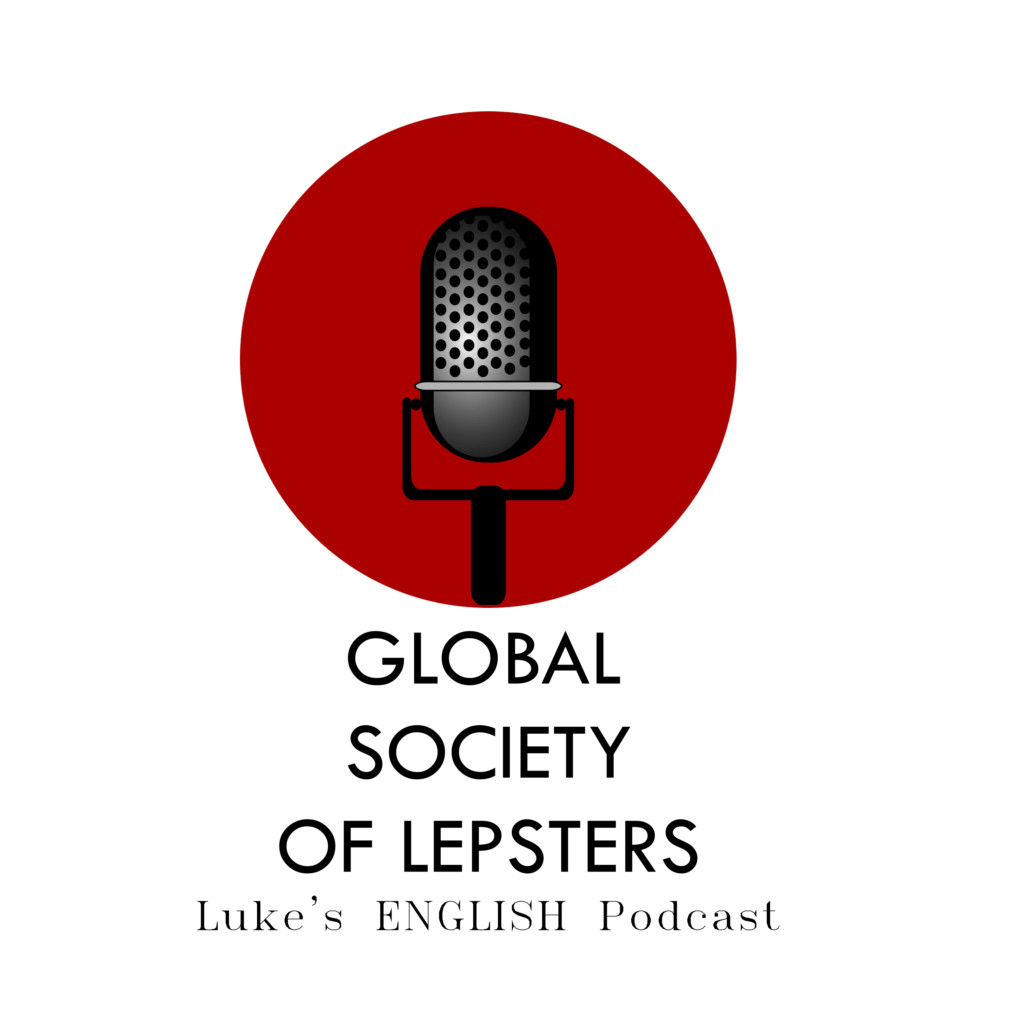My brother James comes back onto the podcast for a conversation about the hot weather, tricky WordPress updates, the Obi-Wan Kenobi series, Rock Music concert movies, Alan Partridge’s live show, Irish/British relations and plenty more.
[DOWNLOAD]
Video Version on YouTube (try activating automatic subtitles)
Introduction Transcript (the audio version might be slightly different)
Hello listeners,
I hope you are doing fine today, and I mean that and I sincerely hope that you’re doing ok and that my podcast brings you some level of comfort.
You know my main aim is to help you with your English with these episodes by either teaching you language directly or by just providing you with a natural source of spoken English with my content, but also I hope to give you some enjoyment, and if that is any kind of remedy for the more serious and difficult things going on, then I’m glad.
Recently I was in London, wasn’t I, staying at my brother James’ place for a long weekend. You might remember that. In the episode we recorded together on the Friday, about the Royal Family, I mentioned that I was planning to record two conversations with James, one about the Royals, and another episode about whatever we felt like talking about. You heard the one about the Royals of course, but we didn’t actually get round to doing the second one.
But a few listeners got in touch wondering about the second conversation with James. It seems he has a bit of a fan club out there, which is no surprise I would say.
So just the day before yesterday I sent James a Whatsapp message to see when he might be free to record another episode, online this time, and he immediately wrote back saying “I can do it now if you want”.
I had about 1 hour before I had to go and get my daughter from school so I wrote back saying “Yes, great – let’s do it!” And a few minutes later we were recording a conversation, and that’s what you’re going to hear in this episode.
Now, my intention with episodes like this is to let you listen to a natural conversation in English, with all the usual features of spontaneous speaking. If you like you can imagine that you’re just in the room with James and me as we have a bit of a chat.
Now, conversations like this, between friends (or in this case brothers) usually go in lots of different directions, don’t they? They don’t usually just stick to just one topic. They move from one thing to the other, they wind this way and that, there are tangents, serious moments, funny moments. That’s how informal conversations work. We’re rambling, basically. I mean, I’m rambling right now too. I’m rambling about how this episode features plenty of rambling. It’s like rambling on the top of rambling – or like Inception for rambling.
So, here’s a run down of the topics that come up in this conversation. I’m saying this to give you a kind of road map – as if to say “here is the main route or path of this journey today. We’re going to go here, then here, then there, then here and so on” – just in order to give you an overview of the conversation which might help your comprehension. Instead of presenting you with a slow, scripted conversation I am throwing you in at the deep end, but also throwing you a rubber ring, so you have at least a fighting chance of not drowning.
Topics (A mix of serious stuff and not-serious stuff)
- We start with the recently hot weather in Europe, and when that turns to the slightly depressing but important subject of the climate crisis we transition to a different subject, because we’re trying to keep it light – and we talk about what we both had for lunch and about eating habits and the challenge of eating 5 portions of fruit and vegetables a day, plus the pros and cons of eating salmon on a regular basis. That’s /sæmən/ not /sælmɒn/.
- Then James shares what he was doing before I called him – trying to update a website using WordPress php and we talk about horrible moments when you get error messages when working on a computer.
- During my lunch that day I was watching the new Obiwan Kenobi Star Wars TV series on Disney+ and we talk about that – just a few brief comments really. Not a full review. See if you can spot the vocabulary that James uses to describe the show.
- This leads us to wonder about Jawas from Star Wars (side characters that appear in the SW universe), and the mystery of what they really look like under their brown hoods. Don’t worry – the SW chat is kept to a minimum.
- Then we turn to the subject of rock music concerts and Neil Young’s live concert video called Rust Never Sleeps, which appears to feature some jawas, which is odd.
- We also talk about some other classic rock music festival movies including Woodstock, Rolling Stones at Altamont and The Last Waltz. So get your denim jacket ready.
- We describe Jimi Hendrix’s historic version of the Star Spangled Banner performed at Woodstock, which also became an astounding statement against the Vietnam war.
- We give some responses to comments from listeners on our recent conversation about The Royal Family, and also questions about why James doesn’t appear on video in my episodes.
- James describes his recent experience of seeing the Alan Partridge live comedy stage show, called “Stratagem” at the O2 Arena in London recently. He gives a kind of review of the show and the venue, and describes a fight between two guys which happened in the bar afterwards.
- We dissect some frogs – specifically several jokes from the Alan Partridge show featuring an Irish character also played by Steve Coogan.
- This leads us back to more serious matters and the subject of Irish protest songs associated with the IRA (Irish Republican Army) which would normally never be played on the BBC but it happened in an episode of the Alan Partridge TV show. That was quite a surprising and fairly significant moment in the history of the BBC. You might learn a little bit about Irish and British relations there, and you can hear a clip of an Irish accent too.
There are some other bits and pieces too, but I’ll say no more here in this introduction. I think that’s probably enough. I hope you can keep up with the conversation – I will chat to you again a little bit at the end, but now, let’s chat to James, or as my daughter calls him: Jamie.
Ending Notes / Script
Thanks again to James. If you want to buy him a pint by the way, or just to show your appreciation or support – the best way is to visit his page on bandcamp.com and buy some of his music. https://jimthompson.bandcamp.com/ YOu know what, don’t tell anyone, but you might be able to see a photo of him there. And while you’re doing that, check out his music. He makes mostly electronic music, some ambient, some techno, some hip hop. You can buy his music and most of the money (if not all of it) will go directly to him. You can support him like that and also you can get some of his “choons” too, which are getting better all the time by the way. https://jimthompson.bandcamp.com/
I’m going to ramble now for some minutes.
Some changes to premium content and how it is delivered to you.
If you’re wondering why it’s been a while since I uploaded new stuff, it’s because I am working behind the scenes to make a few changes to the way I deliver premium content to you. I have also been making a series of premium episodes but I’m holding onto them until I know exactly what is happening. That is the storytime series which I’d been meaning to do for ages. I finally got down to it and wrote about 15 stories – all true stories from my life, which I can use to teach you grammar, vocabulary and pronunciation. That’s coming up on LEP Premium. Don’t worry, I am still working on that and have no intention of stopping or anything.
Remember if you need any information about your premium account – any questions about it, go to www.teacherluke.co.uk/premiuminfo because I have put answers to all the frequently asked questions about the premium sub there.
I also just want to say to all of you – especially the premium subscribers and people who have donated but also to those of you who listen until the end of episodes like this and leave comments and so on – thank you for supporting my show. There are always so many episodes I want to make, things I want to say and do – including different topics, different techniques, more language-focused content, returning guests, new guests – and all the things that people often request or suggest.
There are only so many hours in a day and days in the week though. It’s tricky to do everything – and I don’t want to overload you or myself.
These are not complaints I am making by the way – nor are they excuses. I’m just attempting to have a bit of transparency here at LEP.
It’s hot! It’s now the day after the day after I recorded this conversation with my brother. It’s Friday late afternoon as I record this and the current temperature is 34 with a “feels like” temperature of 36. So it’s 36 degrees basically. I’m flippin hot, but my pod room is not too bad. The podcastle withstands the heat quite well and I don’t get any direct sunlight in my window which helps. Another thing that helps is that if I open a window in the corridor outside my room, and open the window in my room (of course) and then prop open the door of my room just a bit (if I keep it ajar by propping it open with an object – in this case a retro plastic skateboard) then I get a slight breeze blowing through the room and this really helps to keep me cool. That’s a little tip I picked up in Japan. It’s common sense of course, but it was one of the little things I used to do to try and deal with the hot summer weather there. Always try to keep the air circulating if possible, by giving the air somewhere to come from and somewhere to go. Oops, nearly got back into cotton eye joe there. Sorry for the earworm listeners.
OK, that’s enough now. I hope you’ve enjoyed this episode. Leave your comments about these things:
- The Obiwan Kenobi series – do you agree with James and me that it’s lacklustre, or not?
- Do you always get your 5 portions of fruit and vegetables a day, and how?
- How is the weather where you are and how do you manage to cope with it? Do you have any good tips for keeping cool? Maybe you just have air conditioning, but what if you don’t?
- What is your favourite rock concert film? We mentioned Neil Young, Rolling Stones at Altamont, The Last Waltz and Woodstock, but there are so many others. Which is your favourite? Maybe you’ve never seen one. Actually, my all-time favourite concert film is probably Stop Making Sense by Talking Heads. Amazing film.
- That’ll probably do actually!
Have a nice day, night, morning, evening etc, keep cool and I will speak to you soon.
Videos
Jimi Hendrix – “Star Spangled Banner” at Woodstock
Santana – “Soul Sacrifice” at Woodstock
Alan Partridge meets his Irish lookalike Martin Brennan (This Time With Alan Partridge, BBC1)
Alan Partridge talks to Martin Brennan during the live “Stratagem” show





































